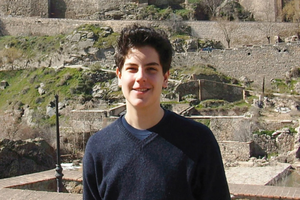St. Isidore Knew a Secret: If You Want to Be a Saint, Be a Student
‘Live as if you were to die tomorrow,’ said St. Isidore of Seville. ‘Learn as if you were to live forever.’

What does it mean to be intelligent?
Today we celebrate the feast of St. Isidore of Seville (560-636), a bishop and scholar from Spain whose wisdom and writings resulted in mass conversions. His life of prayer and study reveals what it means to allow the truth to set us free. When we become attached to knowing God and gaining knowledge of the world, we are crafted into saints.
Isidore wrote the first encyclopedia written from the Catholic perspective, called the Etymologiae. He was known for his profound wisdom and his ability to call to mind advanced truths and speak about them rationally. He was known especially for an intimate prayer life and union with the Lord — his daily commitment to prayer and study ruled his life.
“Live as if you were to die tomorrow. Learn as if you were to live forever.” These words of Isidore can be viewed as the refrain of his soul. They transmit the truth that we are all called to live with a sense of clarity regarding our purpose and vigor regarding the beautiful urgency of the human condition.
Too often, the routines and challenges of our lives hinder us from living to our potential. We hold back on jumping into our lives as fathers, mothers, sons, daughters, co-workers and Christians because we become consumed by realities that are not of God. It can become easy to coast through life and stop the journey of learning and deeper union with Christ in prayer because we are simply too busy.
We must never halt on our journey of learning. The depths that we can reach in prayer are endless — and so are the depths of knowledge that we can attain. There’s a connection between becoming lifelong worshipers and lifelong learners — because God made everything. To know reality and to know the truth is to know him more profoundly. This allows us to always have our minds and hearts lifted to God, who is always present to us.
For this reason, Isidore said, “If a man wants to be always in God’s company, he must pray regularly and read regularly. When we pray, we talk to God; when we read, God talks to us.”
Both reading and prayer complete the conversational aspect of faith. Ordinary life should not be separate from prayer life. When we are committed to growing in intelligence and intimacy with God, we become fully human.
God speaks to us most clearly through Sacred Scripture but he also speaks to us through the circumstances of our lives (including what we read for leisure).
“All spiritual growth comes from reading and reflection,” said Isidore. “By reading we learn what we did not know; by reflection, we retain what we have learned. The conscientious reader will be more concerned to carry out what he has read than merely to acquire knowledge of it. In reading, we aim at knowing, but we must put into practice what we have learned in our course of study.”
For Isidore, reading and prayer both require intentional focus. We must be aware of who we are spending time with when we pray and we must reflect on what we have read for the knowledge to be absorbed into our intellect. This makes us “conscientious” and enables us to use the knowledge gained in a way that will glorify God and sanctify the world.
Being driven to be smart means that we are concerned about knowing the truth to serve the truth in the concrete world.
“Indeed, just as we must love God in contemplation, so we must love our neighbor with action,” Isidore wrote. “It is therefore impossible to live without the presence of both the one and the other form of life, nor can we live without experiencing both the one and the other.”
Here we come into contact with the purpose of one’s prayer and study. We are invited to become so immersed in the Presence of God that we are emboldened to enter the world and bring his love and truth to those who desperately need to know it and hear it. Private prayer and private study can never remain solitary practices. They are not activities for the sake of producing a certain object, but ways of living that bring about holiness.
To study is to be lifted up into the mind of God, and to pray is to be lifted up into his heart. While learning is important, Isidore would remind us that there is nothing more important than experiencing the living God in our daily prayer. The movement to pray ought to be the guiding force for our study.
“Prayer purifies us, reading instructs us,” he says. “Both are good when both are possible. Otherwise, prayer is better than reading.”
Today, may we learn from St. Isidore. May we learn that to be smart is to place union with God above all else and that to be guided by his voice is to be the intelligent saint he calls us to be.
- Keywords:
- st. isidore of seville
- study
- learning
- holy reading















